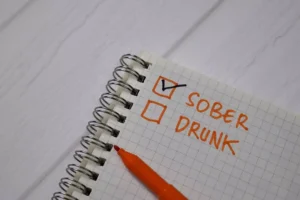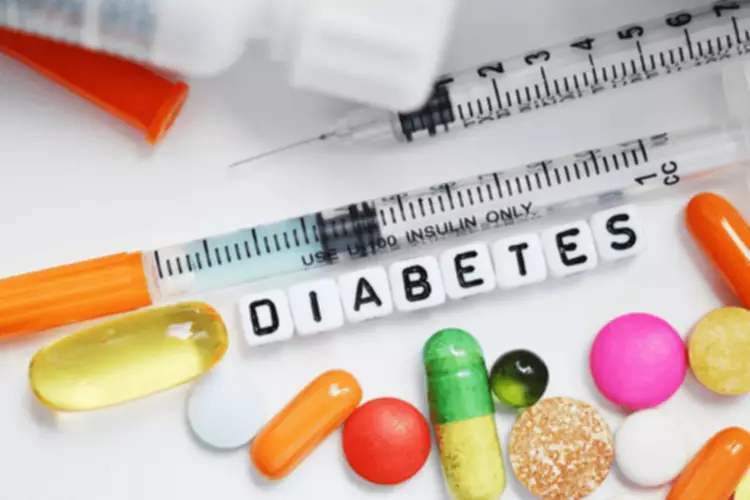
Effective addiction treatment providers will have addiction counselors, but they should also have mental health services as many people with alcoholism have co-occurring mental health conditions. Affirming oneself as an alcoholic and using statements such as, “I am an alcoholic”, “I am powerless over alcohol”, and “once an alcoholic, always an alcoholic” has damaging side effects to ones’ recovery. These statements work together to form self-limiting beliefs that they are an alcoholic, that’s all they’ll ever be, and there is nothing they can do about it; limiting their potential for growth. Cirrhosis of the liverOur liver filters out harmful substances, cleans our blood, stores energy and aids in digestion. Too much alcohol can be toxic to liver cells, causing dehydration and permanent scarring—which ultimately affects the blood flow. With excessive alcohol consumption, this important organ can’t metabolize Vitamin D, which could develop into a deficiency.
- However, when we don’t challenge or pay attention to our bias, it means we disregard the finer details- when they do actually matter.
- About 50% of these individuals are from families with multigenerational alcoholism, and almost all have experienced clinical depression.
- There are various types of alcoholics, and not everyone with an alcohol problem fits a stereotype.
- There are many stakeholders in everyday life and in the treatment provider community.
- However, even a mild disorder can escalate and lead to serious problems, so early treatment is important.
Register for an enhanced, personalized experience.
Simply wanting to be sober can be a major factor for success. You could look at drinking alcohol like skydiving, Dr. Oesterle says. There is no recommended number of times that someone should jump out of a plane. It’s fun for some people, but there is no medical reason to do it or health benefit from it.
Family and Children’s Programs
Jeanette Hu, AMFT, based in California, is a former daily drinker, psychotherapist, and Sober Curiosity Guide. She supports individuals who long for a better relationship with alcohol, helping them learn to drink less without living less. The belief is further cemented by media portrayals—commercials, movies, and TV shows often depict alcohol as a central component of joyful occasions. We have 8 myths about alcohol all seen advertisements that portray people having the time of their lives while drinking—whether it’s a group of friends at a beach bonfire or a couple celebrating with champagne. Alcohol misuse can impact every aspect of your life in ways you may not expect. Unless you have religious or personal restrictions, a few drinks with friends or a glass of wine with dinner is usually not an issue.
Renewal Center for Ongoing Recovery
- This camp requires us to examine alcohol dependence through the lens of the past.
- If you think you or someone you care about has alcohol use disorder, here are some next steps you can take.
- Once they were past the point of the physical need, I helped them identify what additional needs were being met by alcohol.
- Thousands of people from all walks of life battle alcoholism every day, and thousands make the decision to seek help.
- Join Club Soda for 10% off your first order of drinks for UK delivery.
If you have alcohol use disorder, you might feel very discouraged if you return to drinking. If you think you may have alcohol use disorder, or you match the diagnostic criteria listed above, the first step to recovery is often reaching out to a healthcare professional. They can help you find the right combination of treatments for your specific situation. One of these gaps is the stigmatization around forming an identity around an individuals’ substance use, that without affirming their addiction an individual will fail to find long-term recovery.

What Causes Alcoholism?
Perhaps the best we can do is honestly inform our citizens about the risks and rewards in hopes they will choose wisely. Fortunately, many different tools can be used when seeking recovery from AUD. A combination of these resources can help one who suffers from alcoholism maintain their sobriety and live a healthy life in recovery. Understanding that treatment can and should be individualized can also help break the stigma surrounding AUD. What works for one person may not work for another, and like other chronic diseases, treatment and recovery for AUD needs to be specialized for the individual.
If you have severe alcohol use disorder and you stop drinking completely all at once, you could experience serious withdrawal symptoms, such as seizures. Many people with alcohol use disorder find it very difficult to quit without medication or therapy. In fact, some research suggests that repeated return to drinking is influenced by systems in the brain that are not under conscious control. People may also refer to alcohol use disorder as alcohol abuse, alcohol addiction, alcohol dependence, and alcoholism.

There are many stakeholders in everyday life and in the treatment provider community. Each segment has its own self-serving definition of alcoholism. I’m an ex-alcoholic and liver failure survivor actively helping the world recover from toxic habits and design a life they love to live. Alcohol detox isn’t easy and not everyone can do it on their own.
It may negatively affect your health and work and relationships with family and friends. I’ll tell you why I am qualified to be writing this—Alcoholics Anonymous was never a part of my sobriety journey. I made it to five years [and counting] of continuous sobriety without ever stepping foot into a meeting. I cannot express to you enough how many times I’ve been told, heard, or witness one say to another “A.A. If you agree with that statement, that is okay, meetings and the twelve steps may be your path to recovery and maintained sobriety, but it is not the only way.
- A higher tolerance for alcohol does not mean the body is impervious to the effect of alcohol; it means that drinkers should be more cautious.
- Only about 5 percent of patients with alcohol withdrawal progress to DTs, but about 5 percent of these patients die.
- Inability to manage your alcohol intake despite negative consequences is a key sign you may have alcohol use disorder and may want to consider seeking help.
